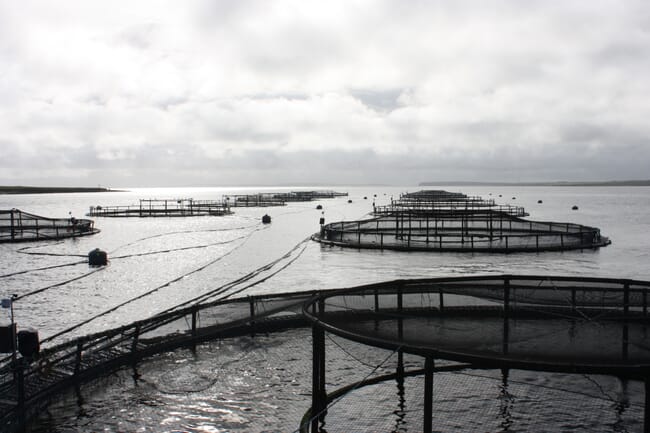
Researchers from Sintef believe it can be recycled profitably in the future
“We’ve been looking into everything from administrative terms of reference to rules and regulations, the current state of our knowledge and, not least, levels of acceptance within the industry. These factors are just as important as any technological developments,” said Sigrid Damman, a researcher at Sintef in Norway, in a press release.
The creation of circular economies is a complex process, requiring stable administrative and regulatory frameworks to reduce risk levels.
This is why researchers are now presenting specific recommendations – both to the aquaculture sector and the public authorities.
Researchers are working on a project called POCOplast, which will look into all aspects of the value chain – from the manufacturers of plastic components, to those who supply both components and services, as well as the aquaculture companies which deliver used plastics for recycling.
“We’ve been looking into what goes on among the various actors in the value chain, and have also tried to understand the barriers that exist in the current regulations,” explained Damman.
The EU has already made a number of amendments to its rules and regulations, and is also offering more funding for research.
“Perhaps we can go even further by requiring that recycled plastic material be incorporated during the manufacture of industrial plastic products,” Damman suggests.
“This will boost development, but it will be a bad move to stipulate new requirements before we’re sure that we have sufficient capacity in place. Nevertheless, we ought to be setting more specific targets for the levels of incorporation of recycled material in the manufacture of industrial hard plastics,” she added.
According to Damman, many aquaculture companies are interested in recycling plastic and developing new products, but it is crucial that those who are going to use the material know that they have access to consistent quality.
“And those who receive the plastics for recycling have to know that there is sufficient demand. They also need to understand, and be able to document, that they are supplying plastic that meets the needs of their customers,” Damman explained.
Manufacturers must assume greater responsibility
Researchers believe that a key to success will be to place greater levels of responsibility with the manufacturers.
In line with the EU's Single-Use Plastic Directive, such an arrangement for plastics derived from fisheries and aquaculture is expected to be implemented by the end of 2024. This means that manufacturers will assume complete responsibility for the entire lifecycle of the product.
There is also talk of introducing funding programmes that will make it profitable to design products suitable for recycling.
According to Damman, the most important thing is to set targets for industrial hard plastic recycling as this will provide more predictability and so increase willingness to invest in circular economy systems.
“We need to stipulate clearer requirements for the recycling of all plastics, including hard industrial plastics. Current requirements offer only the wording ‘plastics suitable for recycling’, which, of course, makes it somewhat unclear as to what materials are included,” she says.
Acceptance by the aquaculture industry
According to Damman, if the aquaculture sector is to adopt new materials and products, they must have assurances that they are as robust and reliable as existing ones.
And she notes that the establishment of a circular economy centred on the use of plastics in the aquaculture sector will be important for several reasons:
- Marine plastic waste has a negative impact on ecosystems and is harmful to marine plants and animals. A circular economy will contribute towards reducing the volumes of micro- and nanoplastics currently entering marine ecosystems.
- Circular economy initiatives are also important for reducing the use of ‘virgin’ plastics, which in turn will result in less greenhouse gas emissions and will help to reduce global warming.
- There will be environmental benefits associated with less plastic being incinerated or placed in landfills, where runoff can be an issue.
"The icing on the cake is that we will be able to create new products and job opportunities in rural areas, based on resources that were previously classified as waste," Damman concludes.



